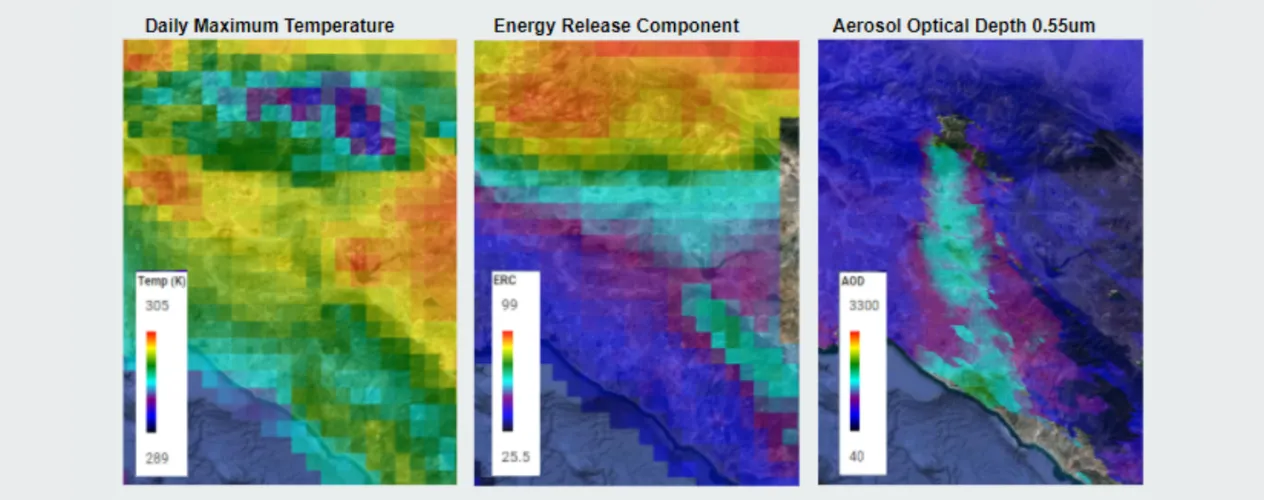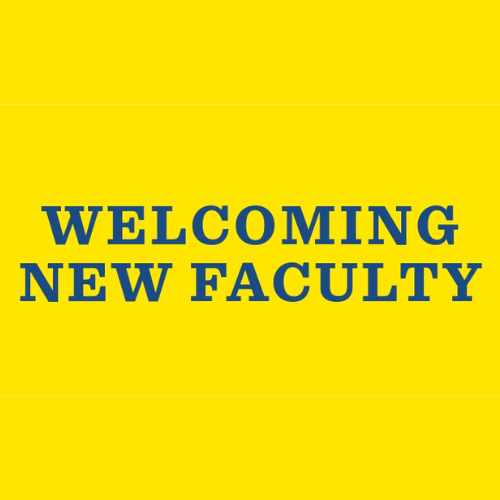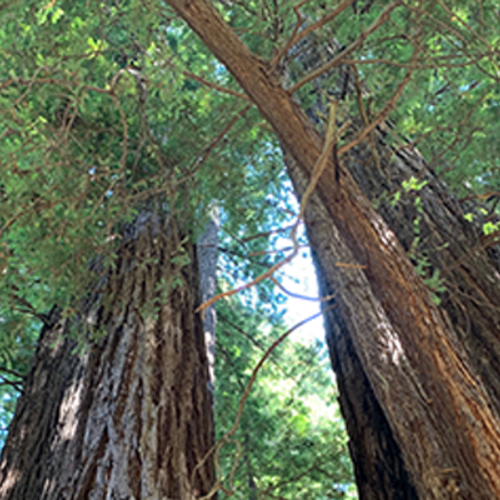UCLA Fielding School professor receives inaugural Google Research Award
Dr. Miriam Marlier, assistant professor of environmental health sciences, is a recipient of Google’s newly launched Research Scholar Program.

Above: This satellite imagery, showing simultaneous climate-related hazards in Los Angeles during the 2020 Bobcat Fire, is an example of Dr. Miriam Marlier’s work using remote sensing to assess risks to human health; the images include extreme heat, heat from the fire, and smoke from the fire.
A research project designed to use satellite data to better understand California’s vulnerability to multiple climate hazards has received one of the first awards in Google’s newly launched Research Scholar Program.
The project - Mapping California’s Compound Climate Hazards in Google Earth Engine – is led by Dr. Miriam Marlier, UCLA Fielding School of Public Health assistant professor of environmental health sciences. Marlier, a former RAND Corp. scientist, uses remote sensing data derived from satellites in Earth orbit to improve responses to natural disasters.
“We’re interested in mapping compound climate hazards in California,” said Marlier, whose research team is in the Department of Environmental Health Sciences at the Fielding School. “An example of a compound event is when people are exposed not just to extreme heat, but to smoke from wildfires as well.”
Marlier’s team focuses on the intersection of environmental change and public health, with an emphasis on utilizing remote sensing-based tools to inform policy decisions. This work fit well into the category of “geo” or earth sciences-focused research supported by the Mountain View-headquartered company.
“In this first year of the program we have granted 77 awards, which included 86 principal investigators representing 15+ countries and over 50 universities,” Negar Saei, Google’s manager for the program, said in a statement.
Marlier’s project was one of only two to win a $60,000 award in the “geo” category, according to Google. Her team will use existing and publicly available data from a variety of public remote sensing sources, ranging from NASA to the United States Geological Survey, to explore the overlapping issues, she said.
“From a public health perspective, we want to better understand what happens when we’re not just exposed to one climate hazard at a time but to multiple hazards at the same time,” Marlier said. “Something we’re also very interested in is if we’re seeing any trends or seasonality changes over time.”


